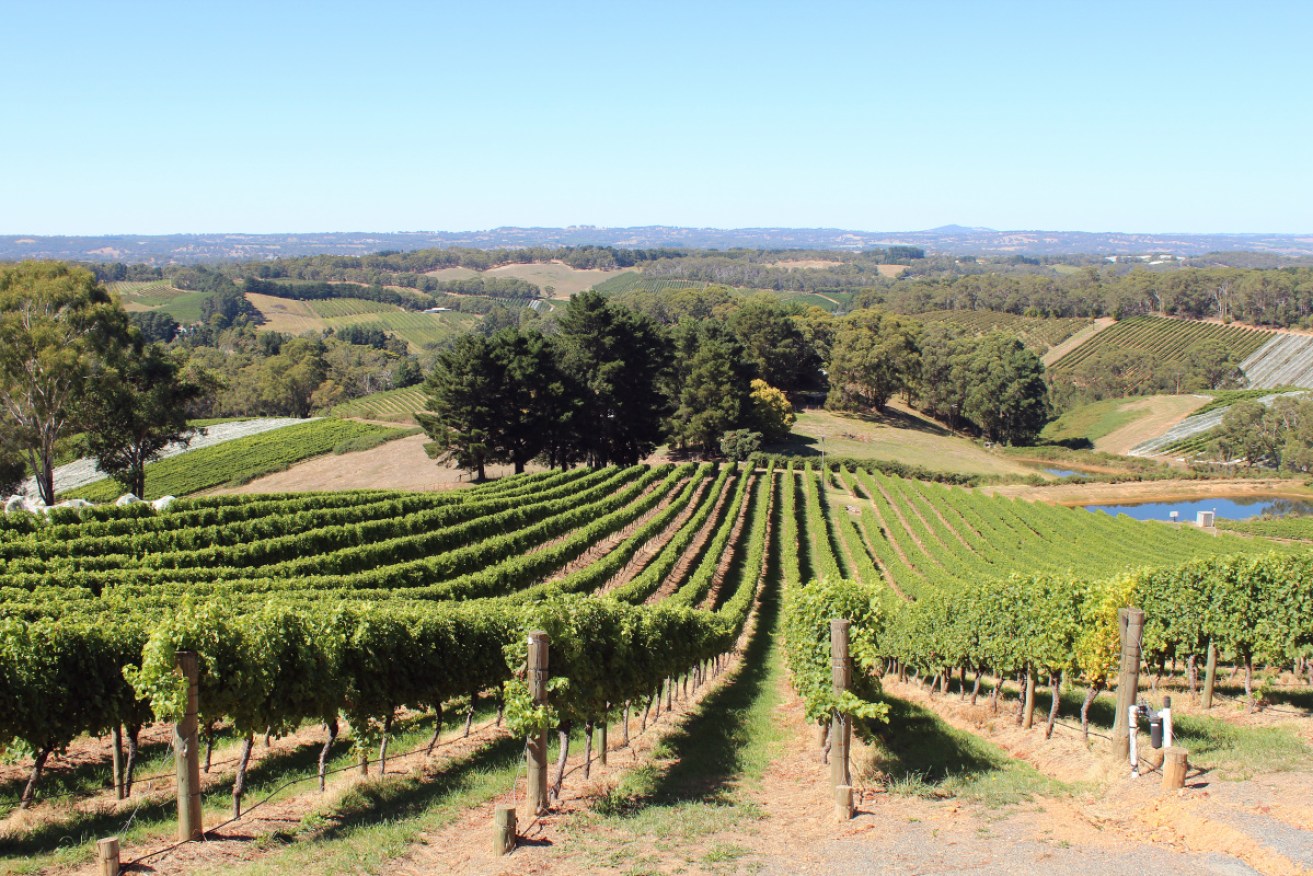The great grape showdown with the EU that’s putting Australian wineries at risk


A wine company in NSW's Wentworth region stole just under 365 million litres of water to make wine. Photo: AAP
The future of Australia’s $60 million prosecco industry hangs in the balance as the EU pressures the Australian government to restrict use of the term to wines made in a small region in Italy.
But local winemakers are hitting back, arguing Italy’s grounds for ownership of the word are “fraudulent”.
Prosecco is one of “five or six” terms whose credentials as ‘geographical indications’ (GI) – names restricted to products from particular regions – are currently being discussed as part of ongoing trade negotiations between the government and the European Union, said European Commissioner for agriculture and rural development Phil Hogan in an interview with Radio National’s Fran Kelly on Friday.
Restrictions on the use of ‘geographical indications’ (GIs) have been in place since the 1994, with the most famous example being champagne, but the push to restrict prosecco’s use is a far more recent phenomenon vigourously contested by Australian winemakers.
The Italian job
Lee McLean – general manager of government relations and external affairs with Australia’s peak winemaker lobby, Australian Grape and Wine – said the move to recognise prosecco as a GI is controversial because geography was more or less irrelevant until about 10 years ago.
Historically, the grapes used to make the wine have been called ‘prosecco grapes’, but in 2009 Italy decided to rename that variety of grape as ‘glera’, before registering the Prosecco district with the European Union.

The prosecco grape was renamed ‘glera’ in 2009 by Italian authorities. Photo: Getty
After making those changes, Italian officials argued other prosecco producers had no claim to the name, as the grapes used were now called ‘glera’ and the wines weren’t produced in the Prosecco region. Their claim was accepted and enforced as one of the EU’s 1675 officially recognised GIs.
“Our view is that this is a manufactured region and it’s been created for pretty cynical protectionist reasons,” Mr McLean said.
The cost of restrictions would be immense, Mr McLean said, with many Australian growers and producers investing a “significant” amount into their wineries and most consumers not understanding that ‘glera’ refers to the same kind of grape.
“It extends beyond prosecco as well, because if this idea that you can suddenly protect a grape variety name – which we think is ridiculous – then there are any number of other grape varieties of different origin that could potentially face a similar fate,” he added.
Ross Brown, a third-generation member the family behind the 130-year-old Brown Brothers Winemakers, said the push to restrict the use is “all quite annoying” and described Italy’s efforts to capitalise on a Prosecco GI as “quite fraudulent”.
“They’re just trying to claw back something that’s become increasingly commercially profitable,” he told The New Daily.
Cheeses also at risk
The Australian Dairy industry Council warned in a statement on Wednesday that local cheesemakers could be presented with a “nightmare scenario”, with use of the names feta, parmesan and haloumi all facing possible bans.

The EU is pushing for parmesan to become a restricted term. Photo: Getty
“Locally produced cheese varieties with a value of production worth $180 million and export sales averaging $55 million each year, would face extinction if the EU succeeds in forcing Australia to accept and implement strict labelling rules,” the council said.
Council chair Terry Richardson said many Australian outfits have “built their brands on their cultural heritage” and EU-enforced GIs could strip cheesemakers of this.
“The future of the Australian dairy industry depends on the federal government’s courage to stay firm in trade negotiations and push back against the EU’s demand to enforce GI restrictions,” he said.
Minister for Trade Senator Simon Birmingham said the government understands the importance the EU places on its GIs, but that “ensuring that Australian farmers and businesses can get better market access and be more competitive in the EU” was the top priority.
“Australian industry can be confident that we will drive a hard bargain … to achieve an overall agreement of benefit to Australia,” he said.
“Any consideration of geographical indications will be transparent and fully engage industry in government decision making.”








